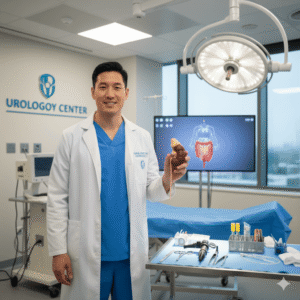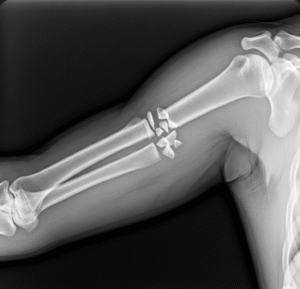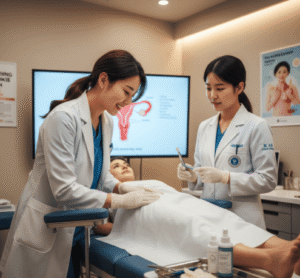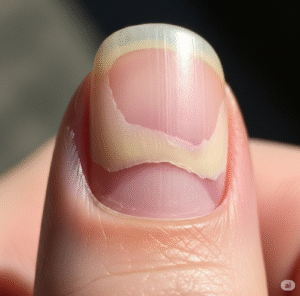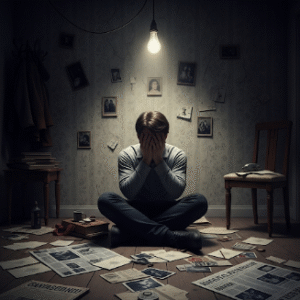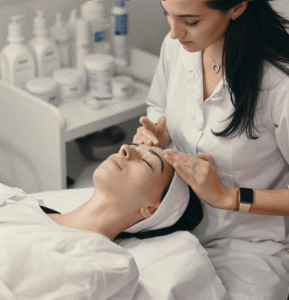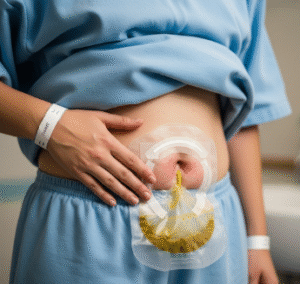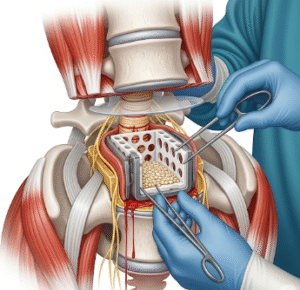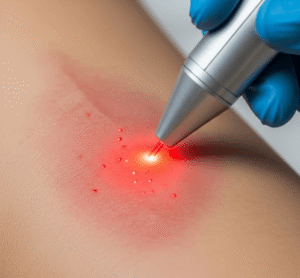Overview
Delusions are fixed false beliefs that are resistant to reason or contradictory evidence. They are a hallmark symptom of several psychiatric and neurological conditions, including schizophrenia, bipolar disorder, severe depression, and dementia. While delusions can vary in content, they often significantly impact daily life, relationships, and functioning. In Korea, specialized hospitals and mental health clinics provide diagnostic assessment, psychiatric treatment, counseling, and multidisciplinary care to manage delusions and improve patient quality of life.
Key Facts
▶ Prevalence: Delusions are common in psychiatric conditions and neurological disorders, affecting people of all ages, though more frequent in adults.
▶ Causes: Mental health disorders, neurological conditions, substance abuse, or severe stress.
▶ Associated Symptoms: Hallucinations, disorganized thinking, mood changes, social withdrawal, and impaired daily functioning.
▶ Treatment Options in Korea: Psychiatric evaluation, antipsychotic medications, cognitive therapy, and supportive care.
▶ Importance: Untreated delusions can lead to social isolation, occupational difficulties, self-harm, or aggressive behavior.
What are Delusions?
Delusions are false beliefs firmly held despite clear evidence to the contrary, often influencing a person’s perception of reality.
▶ Types of Delusions:
▶ Persecutory: Belief that one is being targeted, harassed, or conspired against.
▶ Grandiose: Inflated sense of self-importance or abilities.
▶ Erotomanic: Belief that someone is in love with the individual.
▶ Somatic: False beliefs about body or health issues.
▶ Jealous: Unfounded beliefs regarding a partner’s infidelity.
▶ Mixed or Unspecified: Combination of delusional themes.
▶ Characteristics: Delusions are persistent, cannot be explained by culture or religion, and often interfere with daily life.
▶ Differentiation: Unlike ordinary misunderstandings or exaggerations, delusions are rigid and unshakeable even when evidence disproves them.
Note: Delusions are a symptom, not a standalone disease, making underlying cause identification critical.
What Symptoms Are Related to Delusions?
▶ Hallucinations: Seeing, hearing, or feeling things that are not real.
▶ Disorganized Thinking: Difficulty organizing thoughts, speaking coherently, or following logic.
▶ Mood Changes: Anxiety, irritability, depression, or elation may accompany delusions.
▶ Social Withdrawal: Avoiding friends, family, or work due to false beliefs.
▶ Impaired Daily Functioning: Challenges in maintaining work, school, or home responsibilities.
▶ Aggressive or Defensive Behavior: Acting out to defend or justify delusional beliefs.
▶ Sleep Disturbances: Difficulty falling or staying asleep due to paranoia or anxiety.
▶ Reduced Insight: Limited awareness that beliefs are false or problematic.
What Causes / Possible Causes
Delusions can result from psychiatric, neurological, medical, or substance-related causes:
▶ Psychiatric Disorders: Schizophrenia, schizoaffective disorder, bipolar disorder, major depression with psychotic features.
▶ Neurological Conditions: Alzheimer’s disease, Parkinson’s disease, brain tumors, stroke, or traumatic brain injury.
▶ Substance Use: Alcohol, cannabis, stimulants, hallucinogens, or prescription medication side effects.
▶ Severe Stress or Trauma: High-stress events may trigger delusional thinking in vulnerable individuals.
▶ Metabolic or Endocrine Disorders: Thyroid dysfunction, vitamin deficiencies, or electrolyte imbalances.
▶ Infections or Inflammation: Encephalitis, meningitis, or autoimmune conditions affecting the brain.
Note: Multiple factors may coexist, especially in older adults or individuals with chronic psychiatric conditions.
When Should I See a Doctor?
▶ Persistent False Beliefs: Strongly held beliefs that interfere with daily life.
▶ Behavioral Changes: Aggression, social withdrawal, or self-neglect.
▶ Mood Disturbances: Depression, anxiety, or sudden mood swings accompanying delusions.
▶ Safety Concerns: Risk of self-harm or harm to others due to delusional actions.
▶ Rapid Onset: Sudden emergence of delusions, especially in previously healthy individuals.
▶ Substance-Related Episodes: Delusions triggered by drug or alcohol use.
▶ Elderly Patients: New delusions may indicate neurodegenerative disease or delirium.
▶ Family or Caregiver Concern: Observed changes in behavior, thinking, or social functioning.
Tip: In Korea, psychiatrists, neurologists, and clinical psychologists provide comprehensive assessment and individualized treatment plans.
Care and Treatment
Management focuses on treating the underlying cause, reducing distress, and improving functioning:
▶ Medication: Antipsychotics to reduce delusional intensity and associated symptoms.
▶ Psychotherapy: Cognitive-behavioral therapy (CBT) to challenge and modify delusional thinking.
▶ Supportive Care: Education, counseling, and social support for patients and families.
▶ Lifestyle Interventions: Healthy sleep, exercise, stress management, and routine maintenance.
▶ Monitoring: Regular follow-up to track symptom progression, medication response, and side effects.
▶ Crisis Management: Immediate intervention for delusions causing dangerous behavior.
▶ Rehabilitation: Social skills training, occupational therapy, and reintegration programs.
Treatment Options in Korea
Medical Evaluation:
▶ Psychiatric Assessment: Detailed evaluation including mental status examination and history of symptoms.
▶ Neurological Testing: Imaging (MRI, CT) to identify structural or degenerative causes.
▶ Laboratory Tests: Blood work to rule out metabolic, endocrine, or infectious contributors.
▶ Medication Review: Evaluate side effects or interactions that may induce delusions.
Advanced Therapies:
▶ Pharmacologic Treatment: Antipsychotics, mood stabilizers, or adjunctive medications based on underlying condition.
▶ Cognitive Behavioral Therapy (CBT): Structured therapy to challenge false beliefs and improve insight.
▶ Multidisciplinary Care: Collaboration among psychiatrists, psychologists, social workers, and rehabilitation specialists.
▶ Supportive Technologies: Digital reminders, therapy apps, or monitoring systems to support adherence and safety.
Rehabilitation & Support:
▶ Patient Education: Guidance on understanding symptoms, medication adherence, and coping strategies.
▶ Family Counseling: Training caregivers to manage behaviors and provide emotional support.
▶ Follow-Up Care: Ongoing monitoring and adjustment of therapy as needed.
▶ Specialist Clinics: Korean hospitals offer integrated care for psychiatric and neurological conditions causing delusions.
Outcome: With early diagnosis and comprehensive treatment in Korea, delusions can be managed effectively, reducing distress, improving functioning, and enhancing overall quality of life.


